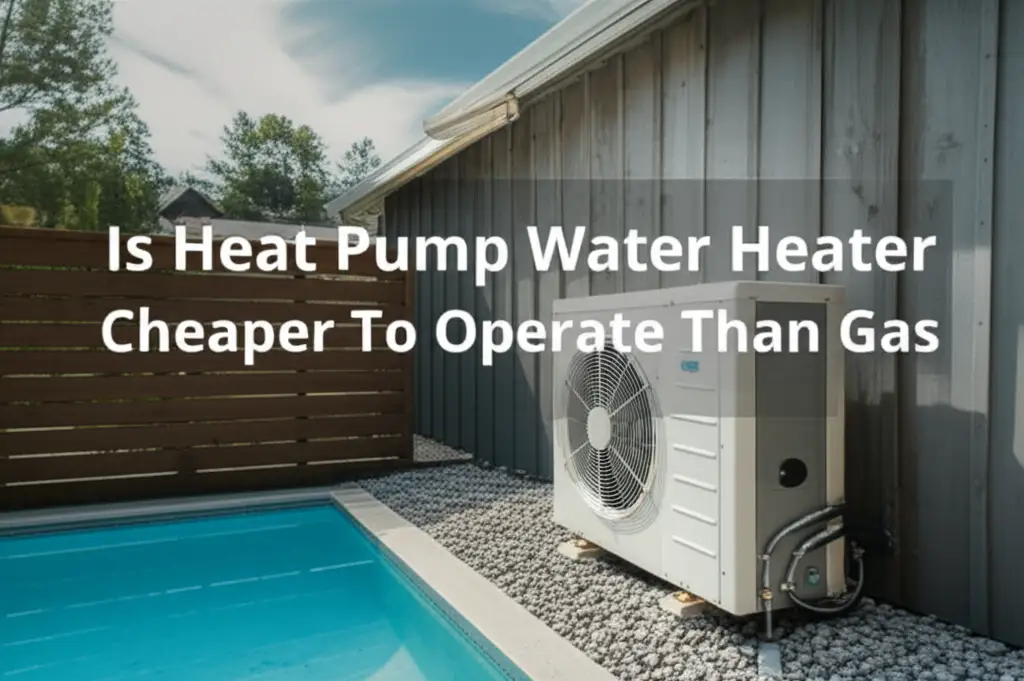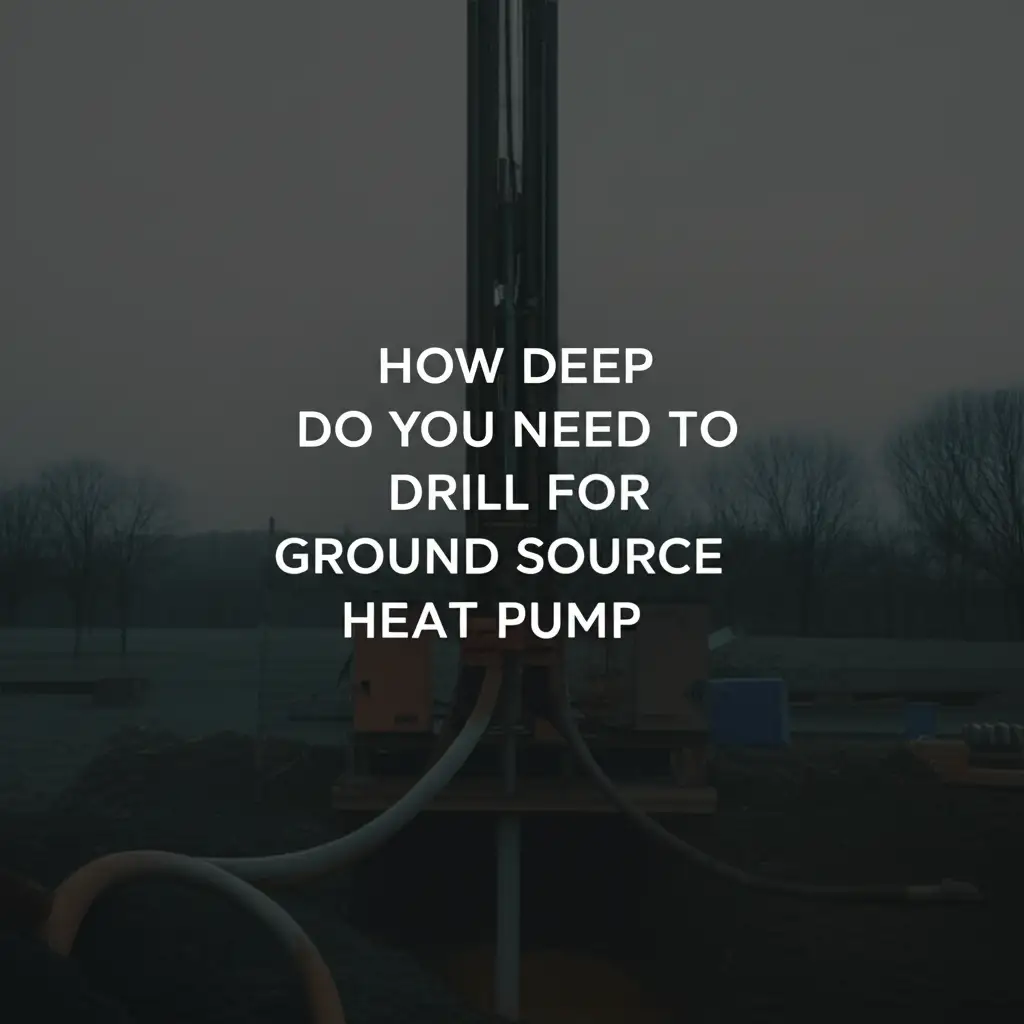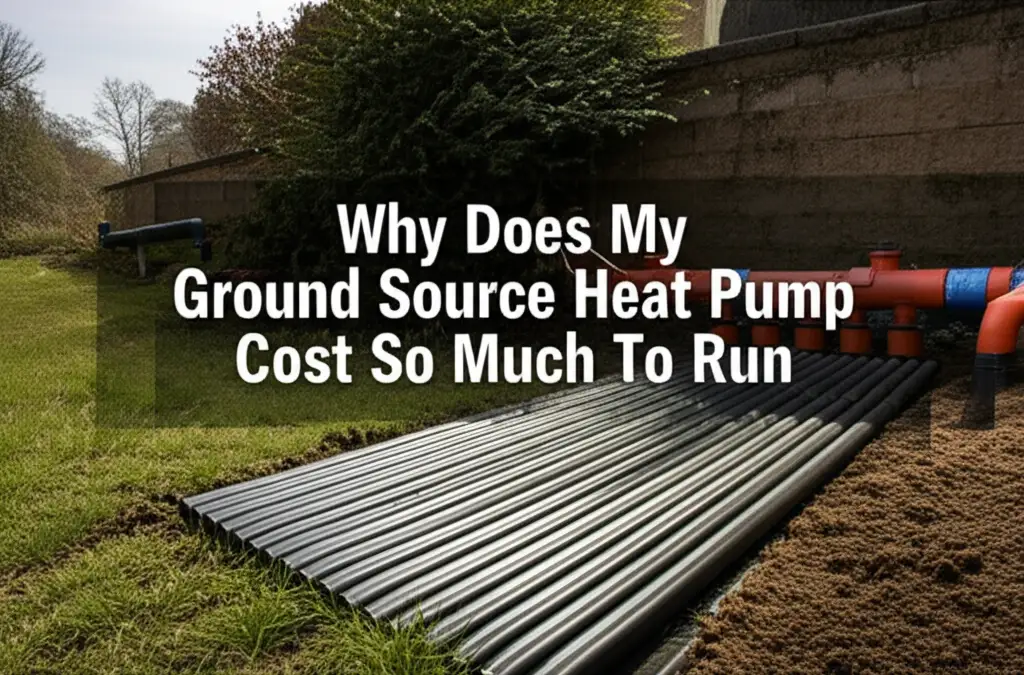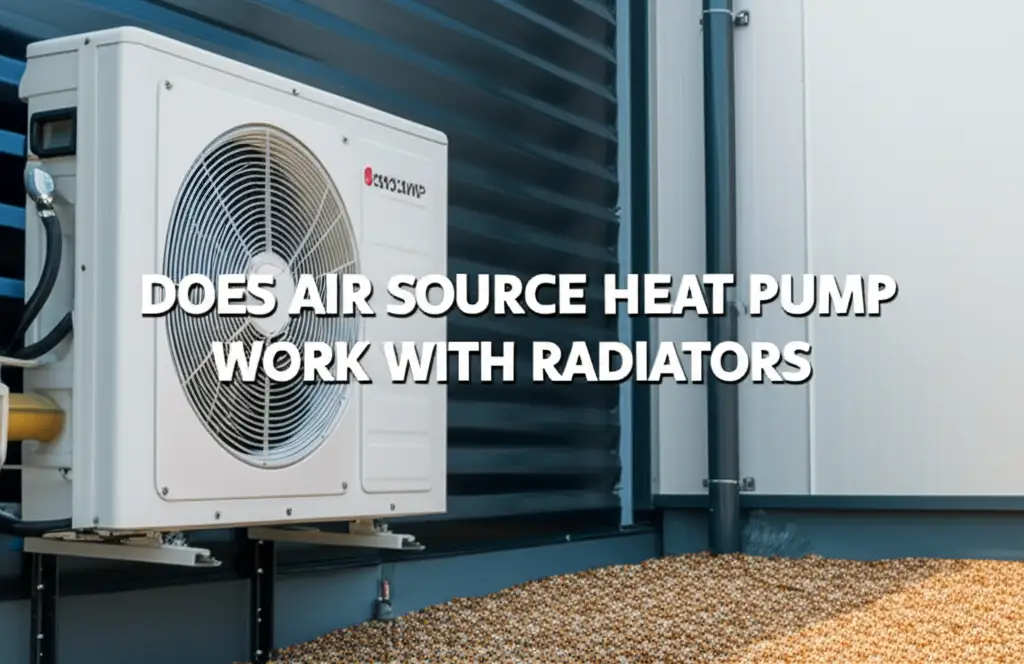· Katria Melrose · Home Energy Efficiency · 10 min read
What Is Geothermal Heat Pump Energy Used For
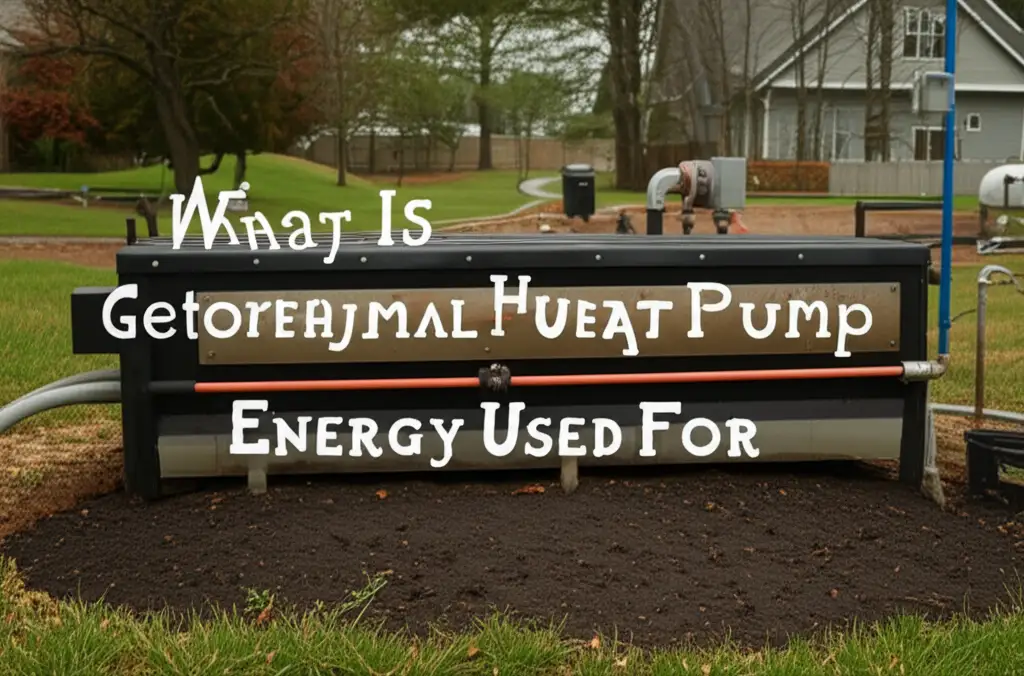
Geothermal Heat Pump Energy: What Is It Used For?
Are you curious about a heating and cooling system that taps into the Earth’s constant temperature? Many homeowners seek efficient ways to manage indoor climate. Geothermal heat pump energy offers a powerful solution. This technology uses the stable temperature of the ground to provide consistent comfort. It stands out as an energy-efficient alternative to traditional HVAC systems. This article explores the diverse applications of geothermal heat pump energy. We will cover its role in residential and commercial settings, from space conditioning to water heating.
Takeaway
Geothermal heat pump energy is a versatile, efficient, and environmentally friendly solution for:
- Heating and Cooling: It provides consistent indoor comfort year-round for homes and commercial buildings.
- Water Heating: It significantly reduces energy consumption for domestic hot water.
- Cost Savings: Users experience lower utility bills due to high energy efficiency.
- Environmental Impact: It lowers carbon emissions by using renewable energy.
- Long-Term Reliability: Geothermal systems offer extended lifespan and stable operation.
Geothermal heat pump energy harnesses the Earth’s stable underground temperatures. It is primarily used for highly efficient residential and commercial space heating and cooling. This energy also provides cost-effective domestic hot water, reducing reliance on fossil fuels and lowering utility bills.
Understanding Geothermal Heat Pump Energy and Its Core Function
Imagine a system that uses the ground beneath your feet to regulate your home’s temperature. This is the core concept of geothermal heat pump technology. A geothermal heat pump does not create heat. Instead, it moves existing heat. In winter, it extracts heat from the ground and transfers it indoors. In summer, it removes heat from indoors and dissipates it into the cooler ground. This process uses minimal electricity for the transfer, making it very efficient.
This system relies on the stable temperature of the Earth’s crust. Just a few feet below the surface, the ground remains at a relatively constant temperature. This temperature is warmer than the air in winter and cooler than the air in summer. Geothermal heat pumps leverage this natural thermal reservoir. They use a network of underground pipes, called a ground loop, filled with a circulating fluid. This fluid absorbs or rejects heat as needed. The heat pump then processes this energy and distributes it through your home’s ductwork. Understanding what a geothermal heat pump is and how it works explains its fundamental principles. This system represents a smart investment for energy-conscious property owners.
Primary Application: Efficient Space Heating
One of the main reasons people consider geothermal heat pumps is their ability to heat spaces efficiently. When winter arrives, traditional heating systems work hard to generate warmth. They burn fuel or use electric resistance heating, which consumes a lot of energy. A geothermal system operates differently. It collects heat that is already stored in the Earth. It then concentrates this heat and delivers it into your home. This process is much more efficient than generating new heat.
The ground loop acts as a heat exchanger. In heating mode, the fluid within the loop absorbs heat from the relatively warmer ground. This warmed fluid then enters the heat pump unit inside your home. The heat pump compresses this energy, increasing its temperature. Finally, it releases this concentrated heat into your home through ducts or radiant floor systems. This means you get comfortable warmth without the high energy costs of typical furnaces. Homeowners report significant savings on their heating bills. This makes geothermal heating an attractive long-term solution for comfort and economy. This usage is fundamental to what ground source heat pump energy is used for.
Beyond Heating: Effective Space Cooling
While heating is a primary use, geothermal heat pumps also excel at cooling homes and buildings. This dual functionality adds significant value. In summer, traditional air conditioners use a lot of electricity to cool air. They remove heat from inside and release it into the hot outside air. Geothermal systems have a distinct advantage here. They dissipate unwanted indoor heat into the cooler ground. The ground loop effectively reverses its function during the warmer months.
When you switch your system to cooling, the heat pump extracts heat from your indoor air. It then circulates the fluid through the ground loop, where the absorbed heat is released into the Earth. The cooler fluid then returns to the heat pump, ready to absorb more heat from your home. This cycle cools your indoor space effectively and efficiently. Since the ground’s temperature is much lower than the summer air, the system works less hard. This results in lower energy consumption for cooling. Many people ask, can a ground source heat pump be used for cooling? The answer is a definitive yes, making it a truly versatile year-round climate control solution. This capability provides comfort even during the hottest days.
Integrated Water Heating Solutions
Geothermal heat pump energy offers more than just space conditioning. It also plays a vital role in providing domestic hot water. Many geothermal systems come with a desuperheater. This device uses waste heat generated during the cooling cycle to preheat your water. The desuperheater sends this preheated water to your conventional water heater. Your water heater then needs less energy to reach the desired temperature. This feature significantly reduces your water heating costs. It effectively turns a byproduct of cooling into a useful resource.
In some advanced geothermal setups, the system can even provide 100% of your domestic hot water. These dedicated water heating units use the ground loop to efficiently heat water directly. This eliminates the need for a separate water heater. Imagine getting hot showers and clean dishes while lowering your carbon footprint. This integrated approach maximizes energy efficiency across your entire home. It combines heating, cooling, and water heating into one cohesive, high-performance system. This makes geothermal energy a comprehensive solution for household energy needs.
Diverse Applications: From Residential to Commercial Spaces
Geothermal heat pump energy is not limited to single-family homes. Its versatility extends to a wide range of applications. Residential properties, from suburban houses to large estates, benefit from its efficiency. Homeowners enjoy consistent comfort and lower utility bills. The system handles varying climates and insulation levels effectively. It provides stable temperatures regardless of outdoor conditions. This makes it an ideal choice for new construction and existing home retrofits.
Beyond residential use, geothermal systems serve many commercial and institutional buildings. Schools, offices, retail stores, and government buildings increasingly adopt this technology. These larger structures often have substantial heating and cooling demands. Geothermal systems can meet these demands more efficiently than conventional HVAC. They help businesses reduce operating costs and meet sustainability goals. The long lifespan and low maintenance of geothermal systems also appeal to commercial property owners. This broad applicability demonstrates the robust nature of geothermal energy as a sustainable solution.
Economic and Environmental Advantages of Geothermal Energy Use
Choosing a geothermal heat pump brings significant economic and environmental benefits. From a financial perspective, users experience substantial savings on utility bills. Geothermal systems are incredibly efficient. They use only a small amount of electricity to transfer a large amount of heat. This efficiency translates directly into lower monthly operating costs compared to furnaces or air conditioners. While the initial installation cost may be higher, the long-term savings often lead to a quick payback period. Many regions offer incentives or tax credits for geothermal installations. These programs help reduce the upfront investment.
Environmentally, geothermal energy is a clean, renewable resource. It does not burn fossil fuels to generate heat or cooling. This means it produces no greenhouse gas emissions on site. By reducing reliance on natural gas, oil, or propane, geothermal systems lower your carbon footprint. This contributes to better air quality and fights climate change. Furthermore, the system operates quietly and has minimal visual impact on your property. It helps preserve the natural landscape. Investing in geothermal technology supports a sustainable future. It provides comfortable living without compromising environmental health.
Year-Round Comfort and Consistent Performance
One of the most valuable aspects of geothermal heat pump energy is its ability to deliver consistent comfort throughout the year. Traditional heating and cooling systems often struggle in extreme weather. Furnaces work overtime in deep winter, and air conditioners strain during summer heatwaves. These systems become less efficient as the temperature difference between inside and outside grows. Geothermal systems, however, rely on the stable temperature of the Earth. The ground temperature remains relatively constant, regardless of surface air fluctuations. This ensures reliable performance in any season.
This stability means your geothermal system works efficiently even when outdoor temperatures are very hot or very cold. You will notice a steady, even temperature inside your home. There are no sudden blasts of hot or cold air. The system maintains a comfortable indoor climate with minimal effort. This constant performance contributes to a higher level of indoor air quality as well. The quiet operation is another comfort factor often overlooked. Geothermal systems have outdoor components that operate silently, unlike noisy air conditioners. This consistent, quiet, and reliable operation makes geothermal a superior choice for year-round indoor comfort.
Frequently Asked Questions About Geothermal Heat Pump Energy Uses
What specific parts of a home can geothermal energy heat or cool?
Geothermal energy can heat and cool entire homes or specific zones. It distributes treated air through a standard ductwork system. This allows it to condition living rooms, bedrooms, kitchens, and basements. It also handles cooling effectively in all these areas. The system provides consistent temperatures across all conditioned spaces.
Is geothermal heat pump energy suitable for all climates?
Yes, geothermal heat pump energy works well in all climates. It uses the stable temperature of the Earth, which remains constant regardless of extreme outdoor air temperatures. This means it performs efficiently in very cold winters and very hot summers. Its efficiency is less affected by ambient air changes than traditional systems.
Can geothermal heat pump energy completely replace my existing HVAC system?
Absolutely. A geothermal heat pump system is designed as a complete solution. It provides both heating and cooling for your entire home. It also offers significant hot water preheating or full water heating. You will not need a separate furnace, air conditioner, or water heater for primary operations.
How does geothermal energy compare in cost to traditional energy sources for heating and cooling?
While the initial installation cost of geothermal systems can be higher, their operating costs are much lower. They use significantly less electricity than traditional furnaces or air conditioners. Over time, these lower utility bills lead to substantial savings. Many homeowners recoup their initial investment within five to ten years.
What is the typical lifespan of a geothermal heat pump system?
Geothermal heat pump systems are built to last. The indoor components, like the heat pump unit, typically last 20-25 years. The underground ground loop, however, can last 50 years or even longer. This long lifespan provides excellent value and durability. It reduces the need for frequent replacements.
Does geothermal heat pump energy impact property value?
Yes, installing a geothermal heat pump system can increase your property value. Buyers often recognize the benefits of lower utility bills, environmental friendliness, and a modern, efficient heating and cooling system. It is a desirable feature that sets a home apart in the real estate market.
Conclusion
Geothermal heat pump energy offers a compelling solution for modern energy needs. We have explored its versatile applications, from keeping your home warm in winter and cool in summer to providing efficient hot water. This technology truly harnesses the Earth’s natural energy to deliver consistent comfort and substantial savings. By moving heat instead of creating it, geothermal systems achieve remarkable efficiency. This translates into lower utility bills and a reduced environmental footprint for you.
Choosing geothermal energy is a step towards a more sustainable and economically sound future. It is a powerful way to manage your home’s climate responsibly. Consider the long-term benefits, including stable indoor temperatures, lower energy costs, and a contribution to a cleaner planet. What is geothermal heat pump energy used for? It is used to provide comfortable living, save money, and protect the environment, all from a single, reliable source. Take the step towards a more efficient home. Invest in the power beneath your feet.
- geothermal heat pump
- renewable energy
- home heating
- home cooling
- energy efficiency
- ground source heat pump
- HVAC systems


